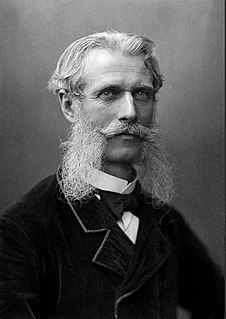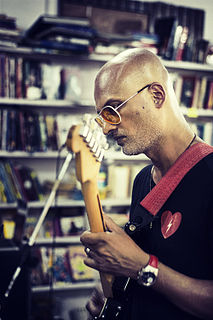A Quote by Thomas Bailey Aldrich
The dead play a very prominent part in the experience of the wanderer abroad. The houses in which they were born, the tombs in which they lie, the localities they made famous by their good or evil deeds, and the works their genius left behind them are necessarily the chief shrines of his pilgrimage.
Related Quotes
The paths by which people journey toward happiness lie in part through the world about them and in part through the experience of their souls. On the one hand, there is the happiness which comes from wealth, honor, the enjoyment of life, from health, culture, science, or art; and, on the other hand, there is the happiness which is to be found in a good conscience, in virtue, work, philanthropy, religion, devotion to great ideas and great deeds.
If only it were all so simple! If only there were evil people somewhere insidiously committing evil deeds, and it were necessary only to separate them from the rest of us and destroy them. But the line dividing good and evil cuts through the heart of every human being. And who is willing to destroy a piece of his own heart?
It is due to neither impotence nor ignorance on God’s part that evils occur in the world, but it is owing to the order of his wisdom and to the greatness of his goodness, whence come the many and divers grades of goodness in things, many of which would be lacking were he to allow no evil to exist. Thus there would be no good of patience without the evil of persecution, nor the good of the preservation of its life in a lion, without the evil of the destruction of the animals on which it lives.
This is a world of good and evil. Wherever there is good, evil follows, but beyond and behind all these manifestations, all these contradictions, the Vedanta finds out that Unity. It says, "Give up what is evil and give up what is good." What remains then? Behind good and evil stands something which is yours, the real you, beyond every evil, and beyond every good too, and it is that which is manifesting itself as good and bad. Know that first, and then and then alone you will be a true optimist, and not before; for then you will be able to control everything.
For, owners of their deeds (karma) are the beings, heirs of their deeds; their deeds are the womb from which they sprang; with their deeds they are bound up; their deeds are their refuge. Whatever deeds they do-good or evil-of such they will be the heirs. And wherever the beings spring into existence, there their deeds will ripen; and wherever their deeds ripen, there they will earn the fruits of those deeds, be it in this life, or be it in the next life, or be it in any other future life.
Thoughts and emotions which never perhaps were in the mind of the artist, never were anticipated, never were intended by him - may be strongly suggested by his work. This is an important part of the morals of art, which we must never lose sight of. Art is not only for pleasure and profit, but for good and for evil.
Remember your contemporaries who have passed away and were your age. Remember the honors and fame they earned, the high posts they held, and the beautiful bodies they possessed. Today all of them are turned to dust. They have left orphans and widows behind them, their wealth is being wasted, and their houses turned into ruins.
No sign of them is left today, and they lie in dark holes underneath the earth.
Picture their faces before your mind's eye and ponder.
Perhaps some deep-rooted atavism urges the wanderer back to lands which his ancestors left in the dim beginnings of history. Sometimes a man hits upon a place to which he mysteriously feels that he belongs. Here is the home he sought, and he will settle amid scenes that he has never seen before, among men he has never known, as though they were familiar to him from his birth. Here at last he finds rest.







































